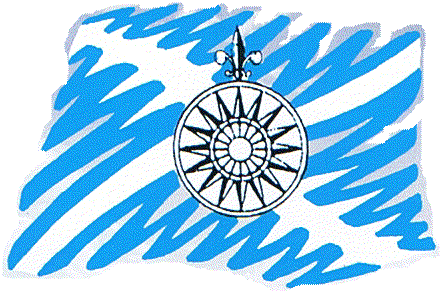RULES OF APPLICATION
How to Apply
Your application should include:-
1. Completed Application Form
2. Supporting information about your project, e.g. copies of any literature from the organisers.
3. The name and address of your Monitor who will support your application together with a letter from the Monitor confirming agreement to act in this capacity.
Monitor
You are requested to nominate a Monitor (who may be your tutor, teacher, careers adviser or an adult who knows you well) to vouch for your project, as described in the “Guidelines for Monitors”. Please note the following - an employee of an organisation / trust which you are travelling / working with is not eligible to be your monitor. Nor can a parent / guardian or someone that lives with you in your home.
Guidelines for Monitors
-
The Monitor is requested to satisfy himself/herself that the applicant:- (a) will really benefit from being given the opportunity to broaden his/her experience and develop confidence and ability for the future; (b) has made every effort to obtain sponsorship for funding from elsewhere, and has obtained any other monies required to ensure the success of his/her project; (c) will undertake the project; and, (d) has chosen a viable, worthwhile and safe project, for which, with the variety and volume of projects, the Trustees are unable to verify.
-
The Monitor is requested to vet the applicant’s completed application form before submission and to ensure that the applicant submits it before the closing date. The earlier the submission the better, as the Trustees may take into consideration the order in which applications are received. If necessary, the Monitor can discuss an application with the Trust Chairman before it is submitted.
-
Where an applicant is successful in being awarded a grant, the Monitor is requested to:- (a) Inform the Trust Chairman when the balance of funds needed to undertake the project have been raised and confirm the project will be going ahead. The Trust Chairman will then arrange for the cheque to be sent to the applicant; (b) Ensure that the money is going to be properly used, especially in the case of individual travel overseas where the pre-preparation may need supervision; (c) Endeavour to have some contact with the applicant once the project has started; (d) Keep the Trust Chairman informed of any problems which may arise during the project; (e) Ensure that a report is written by the applicant giving an account of what happened on the project and what value was obtained, giving an account of the experiences and the value and positive aspects of the project, as well as difficult or negative challenges; and, (f) Ensure that the report is submitted to the Trust Chairman within three weeks of the conclusion of the project. If the final report is not submitted, SSYAT reserves the right to require repayment of the Award from the applicant.
-
An important reminder – the monitor must not be a member of the applicant’s family. Rather the monitor should be an adult who knows the applicant well via education, volunteer or work experience.
Compulsory Final Report
You are required to submit a report to the Adviser at the address above within three weeks of the conclusion of your project.
If a report is not submitted, SSYAT reserves the right to require repayment from you of any Award made to you.
We appreciate that some sponsors may require a more detailed report, but please précis your report for us so that it does not exceed two to three A4 pages.
Reports are highly valued by the Trustees to enable them to know what you did on your project and what value you feel you got from it.
The Trustees want to see a candid overview, including not only the positive aspects of your project, but difficult and negative challenges.
SOUTH OF SCOTLAND YOUTH AWARDS TRUST
REPORT FORMAT
The Report should be 2-3 pages long including high-definition photographs – NB this is a guide not a definitive template.
SUGGESTED REPORT FORMAT
Introduction
-
The report should include what attracted you to the project, any background or personal history connected to the event and how you found out about it. Above all, you should include the aim or purpose of your activity including how it would aid your personal development.
The Project
-
Give a summary of the project, your travel, hosting arrangements, activities and outcomes. Highlight not only what went well but also what did not and what could have been done better. You should aim to include 2-3 high-definition photographs.
-
Observations on environmental factors – if applicable and relevant could be included here.
Lessons Learned and Possible Future Activities
-
From which activity did you gain the most?
-
What conclusions in the wider sense did you draw from the project? This could be personal or wider eg if the project is involved in supporting education, environmental, structural etc what do you think could/should be done in the future?

